Jeff Hawk is a Wolf Clan man of the Cayuga nation who was born and raised in Six Nations. Jeff was brought up Longhouse and is a supporter of the Six Nations Confederacy. He has long been involved in standing up for his people’s rights and has recently opened up a medical cannabis dispensary in Six Nations. Called Green Health for 6 Nations, the business is located at 1143 Highway 54, between the towns of Caledonia and Brantford.
Why are you involved in the Cannabis industry?
One older woman came to me and said “I need this for my husband. Without this medicine, my husband will shake uncontrollably for who knows how long.” she says. And she says “if you weren’t here, I wouldn’t know where to get this.” And the son says, “within six minutes of my dad using this, he can sit and be normal again.” He has Parkinson’s and has uncontrollable tremors. What she said, is that within six minutes, he’s back to normal. So that aspect of it is more rewarding than what money can give you, when you have that happiness from knowing you’ve served somebody.
And that’s just one of the products that I carry, being the CBD and the tinctures and stuff like that. A lot of elderly come here looking for their edibles. “I want a muffin, I want to be able to sleep tonight.” I had one lady that couldn’t climb no stairs before she came here and started with the products here. Now she comes up… I used to meet her outside, downstairs. Now she’ll walk up the stairs herself and grab it. And she’s happy.
Who’s your standard client?
It’s all walks of life. From the methadone user to the sore and needy, to the crippled and diseased to the MS and Parkinson’s patient. I have a lot of people that are here religiously because they don’t want that methadone, and I have products that’s helping them ease off of that. The CBD tinctures range from a 350mg of dosage to a 1000mg dosage, depending on their level of severity, it’s there to benefit them. But like I said, the clientele ranges from 19 years old to 80 years old.
Is cannabis a medicine?
I think it’s a total medicine. It helps in every way that it can, even to the user that’s coming in here to get high, so to speak. I don’t know what their reason is to get high or to have that feeling that they’re looking for, but to me that’s a medicine also. It may calm their mind, it may help them think clear, it may help them just get through a depression or a state of anger because they had an argument with somebody, and just help them. So to me, that’s a medicine.
I use it myself for many different shapes and forms of everything. I broke my foot last year. I don’t take those opiates, I don’t take Tylenol 3’s; I’d rather use something natural that’s grown from the earth.

Are you anxious about police raids?
They did raid, and it bugs me that they did. It makes me question how did they learn so fast that there was cannabis being provided here to somebody, and raid it within a month or two, shut it down, but they can’t raid a drug dealer in our community that’s been selling fentanyl for years. So how can this particular person sell these illicit drugs or fentanyl or whatever, have overdoses occur right in his property, and the they turn a blind eye to that, when he’s sitting within a hundred feet of a public school. So that’s what bugs me about them and their raid.
I guess my anxiety, that’s where that would come from. There’s a lot of issues here that I’m having with band council. I don’t know how to get past that wall. There’s a need here for the cannabis industry, there’s a need here for medical marijuana to be provided. It’s a safe environment for people to come choose their product. I’ve tested every one of these products. When I test, I mean I ingest them, I try them, I eat them, I smoke them, whatever it may be, I try it. And I’m still here. There’s no fentanyl, nothing’s going to harm you here.
This is a safe, clean environment, friendly environment where people can come and get their marijuana, their edibles, whatever it may be, where they don’t have to knock on a door for a twenty-bag and not know what you’re getting. So you can come here in a safe environment, friendly people, and you have a variety to choose from.
If there’s a problem, I’ll own up to that. I’ll live by that, and I’ll say listen, okay, I’m sorry, or whatever it may be. I’m not going to say “get out, it’s not me that’s doing it, or no you didn’t.” No, the customer is always right. It’s a client, customer type based thing here. But as I said, I test all my products, I know it’s good, it’s clean, it’s a safe environment, it’s a friendly environment. And there’s a relationship built there between you and your clients now. It’s not just about coming here and buying cannabis, buying marijuana, buying shatter or concentrates or whatever. It’s about coming here and they say hello and “Hey, how can I help you?” There’s a bond there now because they know they can come here and it’s reasonably safe.
The question I get asked every day is “Oh well, the cops, well you’re okay?” “Oh yeah.” “They haven’t raided you yet?” “No.” So that’s in the back of not only my mind, but their minds as well. And I think business would thrive a lot more if a lot more people knew that there’s no police or nothing is going to be involved, band council or any one else.

What do you think of Ontario’s legalization?
I feel like it’s just another money grab. They’ve seen an opportunity, they jump at it. They’re not thinking about everybody else that started this industry, that showed them how to do this. What they’ve done is studied it and said okay, now we’re going to do it. We’re going to monopolize it and screw everybody else. They’re saying it’s legalized but they’re training millions of cops to deal with the problems that are going to arise.
And the problem is only because they’re putting in stipulations. You’re only allowed to consume government issued marijuana. So if you’re caught with black market marijuana, again you’re charged. So how is it legalized? It’s not legalized. So I think that the only place that the cannabis industry may survive is in First Nations territories or Onkwehon:we territories.
I think it’s going to take us as a nation as a whole to stand up and say listen, we have the right to govern ourselves. We have the right to choose this as a medicine. We’ve had medicine before they had doctors. Who are they to say that this is not something that I as an Onkwehon:we person can’t provide to somebody who needs it? So I think with the province doing what they’ve done, it just opens a door for Onkwehon:we people to grab ahold of something good and better the whole community as a whole. Then maybe communities around the world won’t be struggling as much. I think this is an industry that could grow if we control it ourselves as Onkwehon:we people. Nobody should be without nothing, as long as we don’t let that band council or the government run us.
Why are you so critical of the band council?
I was born and raised Confederacy. I’m born and raised longhouse and traditional values. That’s the only real system that I know of. The band council was forced here upon us. To me, that’s just another puppet or a string that comes all the way from Ottawa to here. So band council is the reason that we’re in this boat today with the lands, with this, that, monies, taxes, we have Tim Horton’s here on reserve now. Band council is the reason I think that we’re going to be maybe paying taxes one day, or property taxes. They’re making us a municipality. And that’s wrong. We should have stopped at Tim Horton’s. We should have done more as Onkwehon:we people to say no, you’re not going to do this to us.
Band council is just not me. I stand for my people to seven generations yet to come. I believe that as long as the river flows, as long as the grass is green, the sun comes up, it’s the people’s land. It’s ours to enjoy. But band council says “It’s ours, it’s our land.” Now they’re saying in court that you can’t be on it, you can’t be on it, and putting an injunction on people to say “You have to stay off the land.” That’s not right.
It’s just a big long string from Ottawa to there, right? Because Ottawa can’t sit here and govern us, so we’ll appoint people to do it for us. And that’s all that is, it’s just an appointed group of people to control a group of Indians to push what they want, push what the Ontario government wants. So band council will just follow legislation. And if they get ahold of this industry, it’s just going to be the same as going to buy it somewhere else.
So you don’t accept band council?
No, I don’t. I’ve defied band council for a while now. In 2007, I built a house on so-called band land. I’ve lived there now since 2007 in that house and I’m still living in that house. And it was called band land. Well I built the house, I lived there, I still live there, I prosper from the land, I live off the land. So I’ve always been defiant to them. If they bring out rules and regulations and say well this what’s going to be, how when that’s not what the Onkwehonwe people want. They didn’t consult my people, or go to my council which is the Confederacy Chiefs and say “This is what we planned, are you okay with this?” Well, that’s what they would have to do. So no, I wouldn’t jump to what they say if they put regulations in or whatever it is.

What is your involvement in medicines?
I’ve always been involved in medicines in many different ways. Not so much in the ways of the plant itself and gathering the medicine. But I’ve always been involved in medicines in different ways, through ceremonies, our False Face Society, stuff like that. We have a lot of ceremonies and stuff here that’s all medicine to us. I take a big part in all that. I do my ceremonies, I sing my songs, I provide that sort of medicine and healing to the people already. I’ve been doing that since I was eleven, twelve years old. I’ve always been doing that ceremony medicine. You know, lacrosse is a medicine to our people. We have traditional football that’s a medicine to our people. So I’ve always been doing those kind of medicines.
The plant based medicine, I’ve not so much been involved in that area, but I know about it. I know that if I need something, I know where to get it. I know what plantain is, I know what it’s all for. I know what Slippery Elm is. I know where to get it. I know where to get the medicines that’s provided for us. I have never been, like I said, actively involved in gathering it or supplying that part of it because to me, there’s women here that do that. We have women here in our community that they gather all that. They’re more pure than I may be. That stuff is so pure that that’s who I leave it to, is the women to do that part of that medicine. And that’s only my opinion.
I consider cannabis to be a medicine, it comes here from the earth. Although I consider it a medicine, I don’t put it with our traditional medicines or incorporate it into our ceremonies. Cannabis is a cure for a lot of diseases, a lot of things, but I still can’t attach the two together, just because of who I am, just because of my teachings, I don’t think it’s morally right yet.
Does that stigma come from Canada making the plant illegal?
I think that’s where the whole stigma started was because when they outlawed it, they told everybody that it’s bad, it’s bad, it’s a hallucinogen or it’s bad, it’s a mind changing, altering thing. It’s no good for you. It does no good for you. A lot of people through the years listened to that. I think the smell of it, too, to the elderly Onkwehonwe people, when they smelled something like that, it was almost like smelling alcohol. So I think just that smell of it turned a lot of people away without even trying it, just smelled it and said ew, that’s bad. So I think that had a lot to do with it as well.
With it outlawed, a lot of people didn’t even try it. They just turned it away just because of the fact that somebody said it’s bad. Growing up, everybody thought it was bad. In schools, marijuana is bad. So there was always this big propaganda about it, this big black cloud over cannabis.
Has there been a cannabis industry at Six Nations for a long time?
Oh yeah. I think every reserve has a cannabis industry or has had it. A lot of people knew how to survive back in the day off of cannabis or by providing it to somebody. So yeah, it’s been here for a while. I don’t know how much of the industry it was, but I know it’s been here. There’s elderly people that are using it and there’s a lot of people that’s been using it since I was young. I’m only 38 years old, but there’s been a lot of people that are a lot older to me that know a lot more. And then even the generation before that, they were probably using it for something, not so much as to get high or having enjoyment, but maybe as a clear your head, or maybe to help you sleep at night.

Tell us about your idea for a meeting?
I think the meeting needs to focus on police. A statement needs to go to them that they need to stay out of our affairs as Onkwehonwe people. I forgot to touch on that earlier about we have the right to prosper from our lands. That was one of our given rights, to use the land as we wish.
Now, medicines and everything that we take from those lands is one of those things. So this here, again, is a medicine. So we need to tell those police that they need to stay out of our affairs. The band also needs to stay out of our affairs. But then again, now how do you gather people to talk about this issue I don’t know. How do we get everybody on that same page to work together to build it, but then on the other hand, you don’t want it?
What about other uses of the plant?
It provides a complete protein if you eat it. It provides fiber that you can use to make ropes or shirts, everything, like down to your oils, your gas. Henry Ford built the body of his first cars out hemp and ran the car on hemp diesel. Right down to your concrete and everything else that they made. Hemp can be used for many different things.
I see this as an industry that can help our people, save our people, in a way, like I said earlier. Not one person down here should not have running water, it should just be done right, it should just be controlled right. Everyone should have access to at least one car in their family that they can use to get themselves to and from doctors or to and from somewhere. Everyone should be able to turn a light on, and everybody should be able to eat, if this is done right.
What I mean by running it right and controlling it right is to say that it goes back to the people, where the band also don’t get their greedy little hands on it, and nobody benefits nothing but them, because that’s what will happen. Should band councils get ahold of it, the only people that are going to benefit is band council or the government. It won’t help the real people, it won’t be the people without lights, the people without food, the people without one car to drive. And that car don’t have to be brand spanking new, just so that they can get somewhere. And like I said, if we as Onkwehon:we people do that right, I think that we could look after that, that field, that era, them people that don’t have that.
We have the chance now to build some sort of environment or some sort of regulatory board or something where we can control it and say listen, the real Onkwehon:we people, this is what we’re doing. We’re here to provide this medicine without taxes.
Why don’t you pay taxes?
We’re not tax collectors, we’re not workers for them [the Crown]. We don’t pay to them. So again, it’s free to prosper from our lands. But again, there’s that threat of land taxes coming only because we have Tim Horton’s here in our community. People didn’t think about the big picture of that Tim Horton’s coming here. They cry about corporation, corporation this, corporation that, HDI incorporated us. Why are you bitching about Tim Horton’s? Because whether you think about it or not, they incorporated us as a whole nation. What’s going to stop Walmart, Canadian Tire, right? Again, it’s just so band council gets their dirty little hands in there and there’s money. As soon as they see money, that’s what they’re about.
The cannabis industry here is about money, yes, but to me it’s more about helping people too. It’s more about that benefit of helping and serving, giving people that safe place again. It’s about that smile on that lady’s face knowing that she has something to protect her husband, to help her husband, and to know that everybody can carry on with their day. That’s the bigger payoff than money. The money, I think, like I said, I think we could just take care of the people and that’s what we should do.
The more I think about it, we need to gather everybody right down to the user, right down to the purchaser or the client, right from Marc Emery to everybody, I think we need to gather everybody’s input on it. And when I say everybody, I think we need to gather Onkwehonwe people for their input. We need their input on how are we going to do this together. It don’t matter whether you live in Akwesasne, in Tyendinaga or Oneida. How are we going to protect ourselves as a whole? And then why can’t we have this industry, from person from each nation, or one person from each territory, one person from each clan family, where everybody oversees it?
We need to put something together, we have to have that. We have to do this groundwork before the band council does it. We have to. We have to do it now, yesterday, it should be in the making because if we don’t, we’re going to work ourselves right out of a job, or we’re going to work ourselves right out of something that is a great opportunity, as a nation, for everyone.

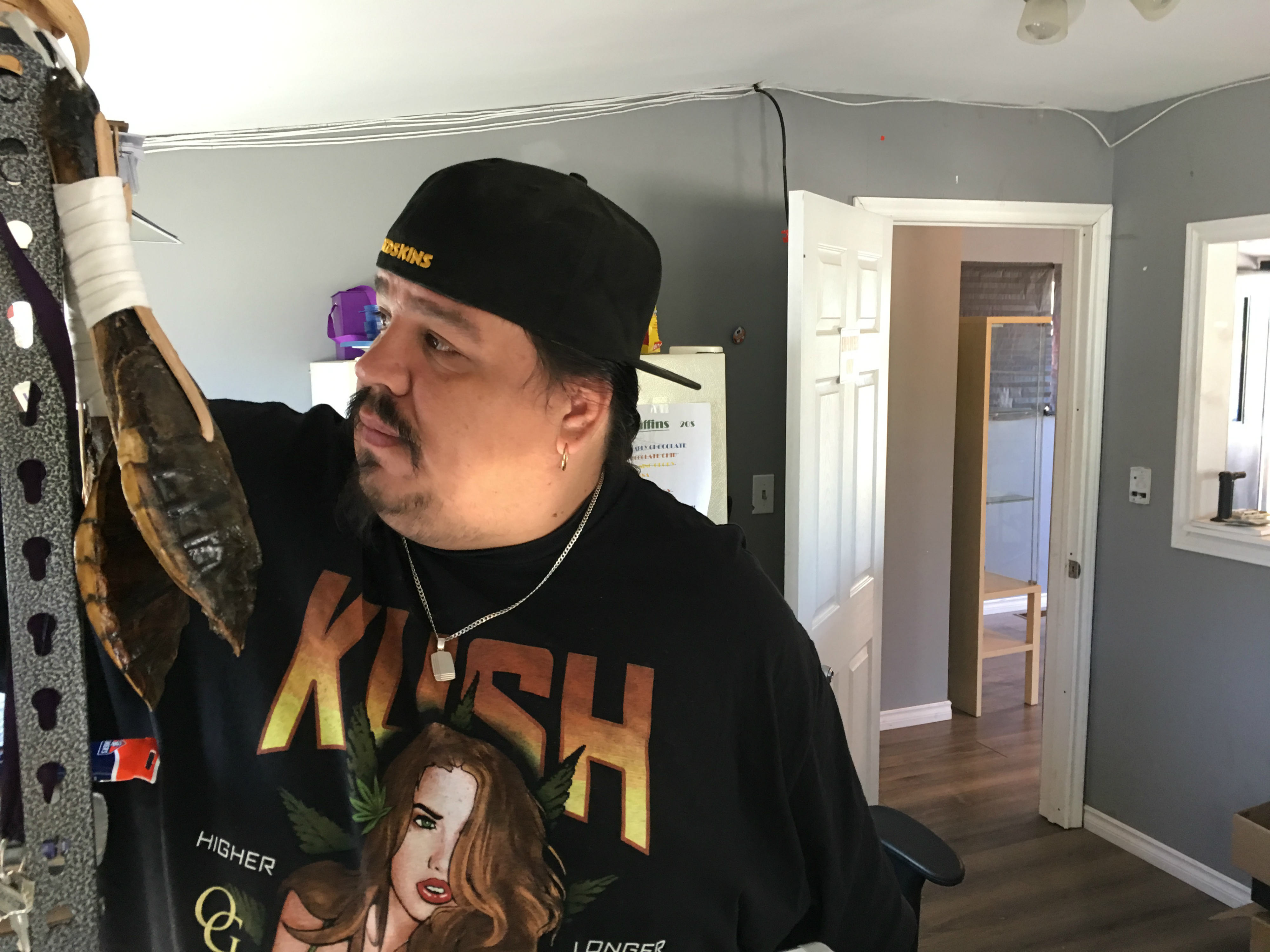
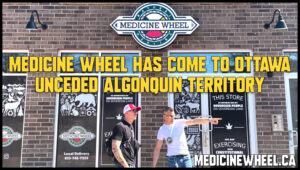
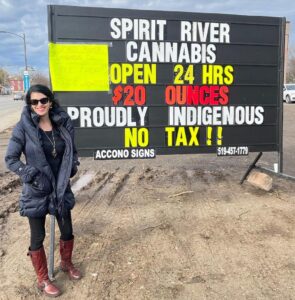
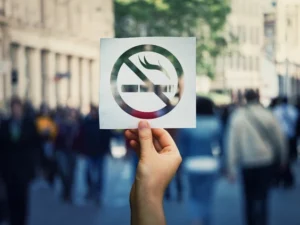
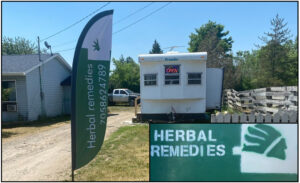
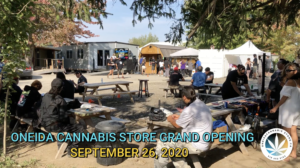
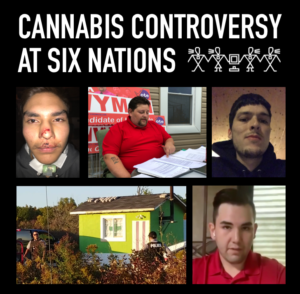
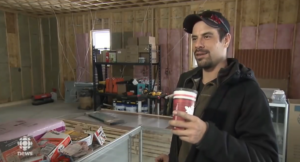
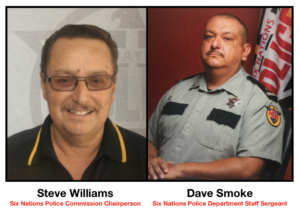
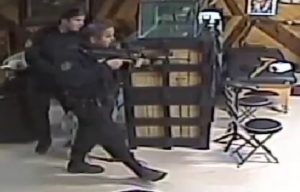

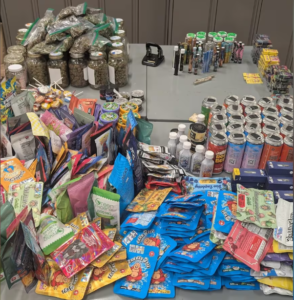
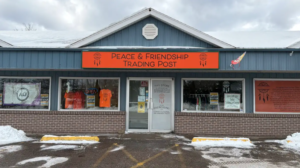
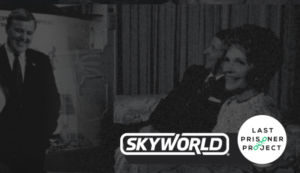
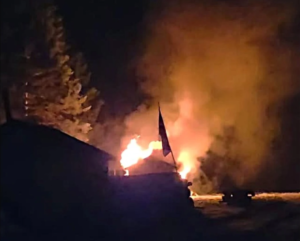

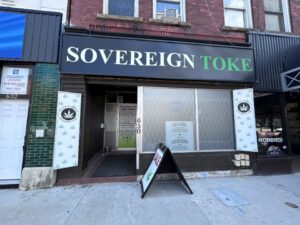
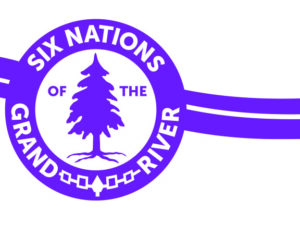
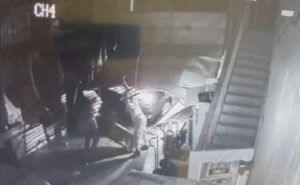
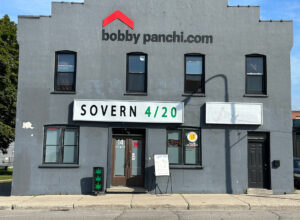
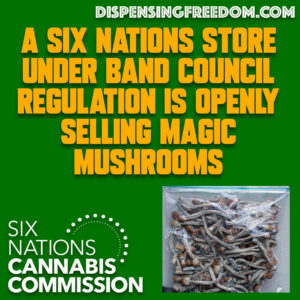
Be First to Comment